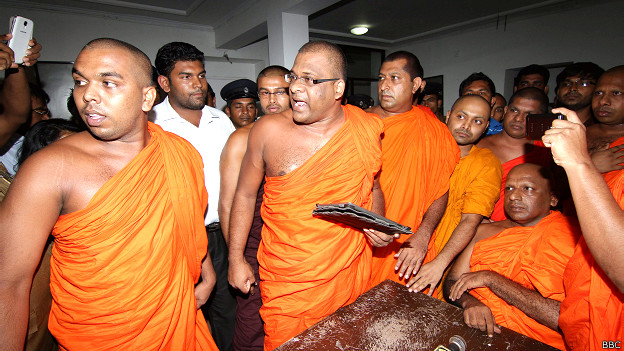Many Americans likely see Buddhism as a religion of peace, with the Dalai Lama as its public face. But in a recent article, the Christian Century highlights the diversity of Buddhism and the existence of radical Buddhists who prefer violence and intimidation.
Christian critics of militant movements in Sri Lanka describe their enemies as the “Buddhist Taliban,” and the analogy is not farfetched. The hard edge of militancy is the powerful and aggressive Bodu Bala Sena organization.
Anyone familiar with Buddhist teachings of nonviolence and nonattachment might find a certain irony in the translated title of this movement, the “Buddhist Power Force,” or Buddhist Brigade. Monks also lead the xenophobic National Heritage Party, the JHU, which seeks laws prohibiting Christian conversions. Inspiring their campaign was the suicidal immolation by fire of a Buddhist monk in protest against Christian strength in the island, and the presence of missionaries. Beyond the conversion issue, militants demand the full integration of Buddhist principles into Sri Lankan law and public policy.
Buddhist persecution is if anything still uglier in Myanmar, the former Burma. As in other nations, Buddhism here is intimately associated with ethnic identity and national loyalty, and at least some Buddhist clergy adopt the role of superpatriotic vigilantes. One very influential monk is Ashin Wirathu, an anti-Muslim demagogue who spreads his message through social media. Seemingly without irony, he describes himself as the Burmese bin Laden.

